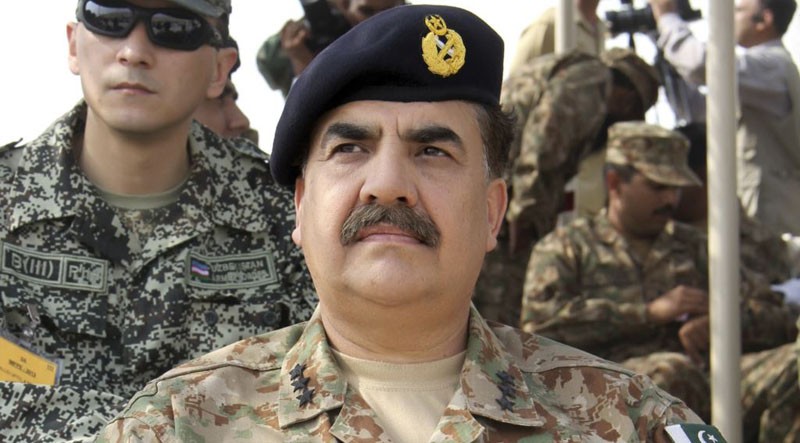
Military courts can be seen as a sign of new, albeit problematic or misguided, resolve

The term ‘narrative’ has some currency in Pakistan, as a word for connecting supposedly known but unacknowledged facts about terrorism in an easily narratable story.
This story must present clear causes of and solutions to our present predicament, must not muddy the waters with doubt and must not dilute the resolve for firm action. But narratives, they say, are driven by repression. Some people, at least, will be interested in them not because of what they say or what they tell us to do, but because of the unknown or unknowable things that drive them onwards. Because that, by undoing the story, makes room for thinking and feeling anew.
A kind of narrative that apparently found no breathing space in Pakistan has ‘suddenly’ found a home in the bosom of the state. The security establishment no longer hesitates to admit that terrorists who operated under the banner of religio-strategic resistance (that closely supported its own declared or clandestine ambitions) could be its ‘jet-black’ enemies. The constitutional amendment authorising military courts in the same stroke empowers them to act exclusively against those who operate ‘in the name of religion’. This causes some disarray in the ranks of people who want more democracy but also more and more forceful security. It seems to give something with one hand and take it away with the other.
The name of religion was previously invoked to signal that terrorists who used it were acting with a motivation that, despite its bad delivery, could not be uncomplicatedly condemned. Furthermore, it was vague enough and compelling enough to underwrite demands for impunity and military campaigns that expanded the militarisation of the state. It seemed to be a workable partnership between ideology and cynicism.
But which one of the two drove it? A wave of religious radicalisation stemming from petro-dollars that Pakistan had no alternative but to channel into military adventures because of irrepudiable affinity of ideology and strategic compulsions? Or a project of militarisation that used religion to subordinate a politics of democratic representation to a politics of impunity which benefited not just the military elite?
Perhaps this question is unanswerable. Or perhaps a kind of answer is being given by the present demand for a crystal-clear narrative against terrorism, in the ease with which it is turning its guns from the foreign aggressor to the ‘internal’ aggressor, but defined with the same glib conviction, with the same disregard and impunity that marked the earlier policy.
A constitutional amendment that undermines separation of executive and judicial functions, evidentiary standards, recourse to appeal, shrouds the working of security agencies in greater secrecy without oversight and undermines the possibility of political process, also makes a gesture towards giving the people the jet-black enemy that they were asking for: religious terrorism based in the lawless tribal areas.
What could keep denial in place more firmly than the frensied search for black-and-white solutions? In the meanwhile, what the so-called new narrative might be showing (without saying or knowing it) is that the means and methods designed to shield impunity, that led to an exponential increase in terrorism ‘in the name of religion’, can now take it as their apparent target without any substantial change.
Military courts can be seen as a sign of new, albeit problematic or misguided, resolve. Or they can be read as a reiteration of an old drive that has found a modified object to which to attach itself.
Ismail Khan, writing for the editorial section of this paper, indicates one jet-black way in which this is happening: ‘the tribal area’s peculiar system already comprises so-called speedy courts… The Frontier Crimes Regulation (FCR) has long empowered a handful of administrators to adjudicate about the whole tribal agency. The FCR is still so arbitrary that, to give an example, male members of tribes -- between 16 and 65 years of age -- can be punished for a crime anyone in their tribes may have committed. Yet, attempts to make Fata similar to the rest of the country continue to be toned down, some say in the name of security.’ (‘Failed already?’, January 14).
A version of exceptional, collective justice has already been the norm in Fata. Yet a constitutional amendment protecting and furthering this type of (extra)judicial process is presented as a new departure in policy towards terrorism.
In tandem with this, people who do not wish to support military courts, and in the past have argued against good and bad terrorists, still persist in assigning a special logic and motivation to religious terrorism.
It is not a new consensus that we need special, hard-hitting, black-and white solutions to terrorism that bypass normal political and judicial processes. Probably, its consequences will also not surprise anyone who has been watching the development of this ‘counter-narrative’.